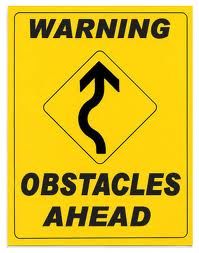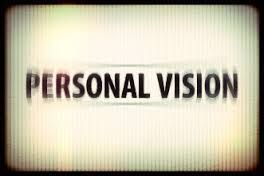Relationships
The 3 Big Obstacles in Relationships
Avoiding the common potholes in relationships
Posted June 14, 2014

So you argue with your partner about money or chores or the kids, or feeling disconnected or too micromanaged. But while the problem always changes, the real problem has nothing to do with what you are talking about. It's about what keeps you from solving the problem of the moment, and staying emotionally connected. Basically there are, I believe, 3 main ways couples get stuck. Here they are:
#1. Communication. I know, I know, you’ve heard this a thousand times. You both don’t communicate so stuff builds up. One of you gets too angry too quickly and the other guy shuts down. You both quickly ramp up, quickly slide again into Christmas 2010 or that comment one of you made to the other's mother, and everything turns ballistic and hurtful.
Good communication is pretty simple in theory, but at times obviously hard to do. The good news is that it's a skill and like any skill gets better with focus and practice. It's about staying on topic and staying relatively calm so you both can move forward. It's about talking about you, your feelings, your intentions, your worries and less about the other guy. It's about avoiding arguing over whose reality is right.
It’s about being brave enough to speak up even if the other person may get upset, controlling you temper so that the other person isn’t always feeling intimidated, both realizing that Christmas 2010 is off topic, and staying sane and keeping the conversation moving forward towards some solution.
The simply yet powerful starting point here is to treat each serious conversation as if you were at work – stay professional and focused. Don’t worry about the other guy. Just focus on you -- keeping your cool, making your point.
#2. Childhood wounds. Where communication breaks down is also about childhood wounds. We all walk out of our childhoods sensitive to certain things – criticism, feeling controlled, not appreciated, feeling neglected. Our partner inadvertently triggers these old wounds – sounds angry about something you did; suggests too strongly what you should do; doesn’t comment on the nice dinner you spent hours making; doesn’t respond to your text or would rather go out with his friends on Friday instead of taking you out. You feel like a 10 year-old, you withdraw or accommodate, or get annoyed. And generally as soon you do you set off your partners wounds – people always pull away or get angry, etc. A negative cycle is set up -- you hurt and withdrawing, him getting angry -- that goes round and round, with both feeling wounded. Eventually one or both of you get fed up. I'm sick and tired of feeling_______ (fill in the blank).
The way out is: 1) Recognizing that this is old stuff and that it's less about your partner and more about you; 2) Responding differently, generally the opposite of what you normally do – be assertive instead of withdrawing, don’t accommodate but instead decide what you want, controlling your anger, not going big and bad, so the other guy can step up to help break the cycle between you as well as help you respond more as an adult than the kid. 3) Keeping it up – again it’s not about you or your partner and who is right, it's about you healing your wounds and becoming less sensitive to these feelings by choosing a different response. You can learn to do it now in this relationship or do in your next, but eventually you need to learn this and respond differently if you are to stop falling in the same emotional potholes.
Start here by knowing what you are most sensitive to (review your past relationships for what you most struggled to do), and consciously moving against your own grain. Do it for you to rewire your brain; don't worry about the other guy.

#3. Vision. So you make it through the first two. You communicate well -- stay on track, not pull out the guns and knives, understand what the other guy wants and needs and can reach a solution. You have moved against your grain – you speak up, you control your temper, you don’t go passive and build your life around what the other person wants; the old wounds are healing. But….you get through all this and you meet your last hurdle -- that your visions no longer match.
Sometimes the vision has to do with the future – I want to live in NYC; I want to get a small farm out in the country and grow our own food; I want to have 3 kids; I want to have none and live in South America. Sometimes it is about the everyday life in the relationship – I need time by myself on weekends to work on my projects; I want to see my parents on the weekends; I want to have dinner parties on Friday nights; I want to stay home on Fridays and get pizza and watch a movie.
This is about compatibility and both adjusting to the normal personal changes that come with aging and life experiences. The hard question is: Do we share enough things in common to make this work? What is the one thing that I can only get from you that is enough to override everything else? These are the difficult conversations that you both need to have.
Start here by defining your vision -- your ideal everyday life as a couple, your goals and visions for the ideal future. Define it, know it, say it. Get it on the table.
All this is about life-skills, about self-awareness and honesty, about speaking up.
It's about owning and running your life. Take these one at a time.




